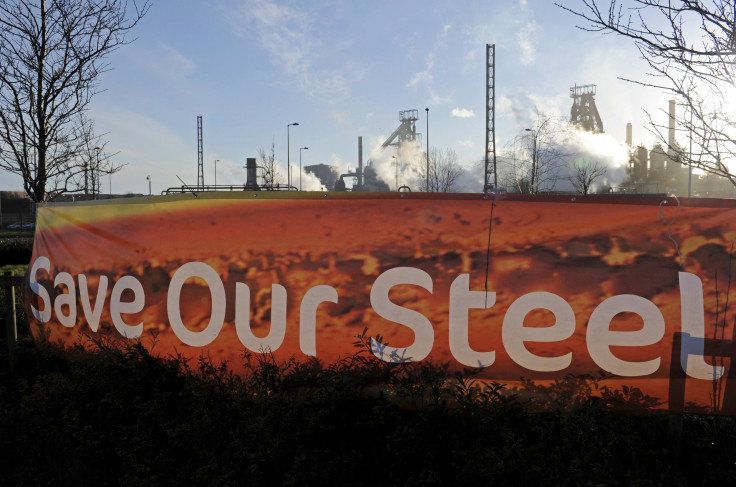India’s Tata Steel Puts British Business Up For Sale [Video]

India's Tata Steel, Britain's largest steelmaker, put its entire British business up for sale to stem heavy losses, a move that would draw a line under its almost decade-long foray into Britain's declining steel industry.
After a marathon board meeting in Mumbai, the steel giant said the financial performance of its UK arm had deteriorated sharply in recent months, following years of weak conditions which have already forced it to shed hundreds of jobs.
Blaming high manufacturing costs, domestic market weakness and increased imports into Europe from countries like China, Tata saw little change in the competitive position of its UK operations, which employ about 15,000 people and include Port Talbot, Britain's largest steel plant.
As a result, Tata said in a statement its European arm would "explore all options for portfolio restructuring, including the potential divestment of Tata Steel UK, in whole or in parts".
Tata Steel bought Anglo-Dutch steelmaker Corus in 2007 and has since struggled to turn the giant around.
The company said it remained in talks with the UK government, which has expressed concern about job losses in the industry. Port Talbot, though far from its 1960s peak, still employs about 4,000 people, and Tata is one of the most significant private companies in Wales.
Unions welcomed the decision not to shutter the plants but called on Tata to be a "responsible seller" and on the government to play its role.
"Tata Community Union will fight on , this isn't the end of the fight, this is the start of the fight. This steel plant can made money. The workforce in there is second to none, the quality of our steel is second to none. It's so important to keep those two blast furnaces going and keep producing steel here. This is a national asset, we need support from our government, Welsh Assembly and the UK government to support us going forward," said Barrie Evans, Community Union Spokesperson and Tata
The opposition Labour party called on the government to save an industry it described as "the cornerstone of our manufacturing sector". Labour leader Jeremy Corbyn again suggested a part nationalisation of the steel industry if necessary. The government has said it is ready to work with Tata.
Most steel companies, including top producer ArcelorMittal, have been hit by plunging prices due to overcapacity in China, the world's biggest market for the alloy, making Tata's task of finding a buyer all the more difficult.
"I don't know whether I was very naive but as far as I was concerned it was a meeting to discuss a turnaround plan that had been what I thought had been agreed here, saving money in a number areas particularly employment costs but what actually appears to have happen is we are now in a position where the whole of the UK business is up for sale," said Kate Jauncey, Engineer at Port Talbot and Union member.
Tata Steel is the second-largest steel producer in Europe with a diversified presence across the continent. It has a crude steel production capacity of over 18 million tonnes per annum in Europe, but only 14 mtpa is operational.
Two of its three main units, Port Talbot and Scunthorpe, are in Britain, with the remaining operations in the Netherlands.
Its share price has halved in the past five years, a period in which it recorded asset impairment of more than $2.88 billion related to the UK business.
The stock opened about 2 percent higher in Mumbai on Wednesday, as investors welcomed the decision to shed a burden on its Indian operation which also has been badly battered by cheap imports from neighboring countries, especially China.
For the year ending March 2015, the company took a write-down of a little over a billion dollars in its consolidated numbers. However, the tide seems to be turning for the India operations, and many analysts expect it to post an improved operating profit from the next fiscal year.
Tata also said in its statement that it was still in talks with investment firm Greybull Capital over the sale of its British long products unit, which makes steel for use in construction. Talks with Greybull were announced last year.
© Copyright Thomson Reuters 2024. All rights reserved.





















